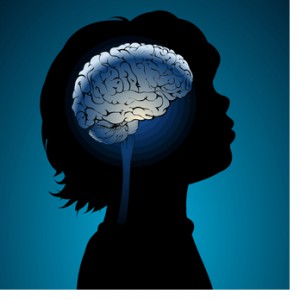To improve academic outcomes, children with ADHD need both medication and non-medication treatments
 .
.
Academic problems are extremely common in children with ADHD, and often the issue that leads to referral for an ADHD evaluation.
Academic outcomes can be measured in 2 different ways — academic achievement and academic performance — and both are compromised in children with ADHD. Academic achievement refers to the information and skills that children acquire and is typically measured by standardized tests. Academic performance focuses on direct measures of success at school such as grades, grade retention, high school graduation, and college enrollment.
An important question then, for millions of kids diagnosed with ADHD and for their parents and educators, is whether long-term academic functioning can improve with appropriate treatment.
The Study
A new study published online in the Journal of Attention Disorders [Long-term outcomes of ADHD: Academic achievement and performance] represents a valuable effort to answer that question.
The authors began by conducting a systematic literature search to identify all potentially relevant studies. Specifically, they looked for all studies published in peer reviewed journals between 1980 and 2012 that examined academic outcomes associated with treatment over at least a 2‑year period. Some of these studies compared academic outcomes in treated and non-treated children; others had no comparison group but looked at achievement and/or performance measures before and after treatment, while others compared outcomes between treated youth and youth without ADHD.
As a result of this search, the authors identified 14 studies that looked at academic achievement outcomes and 12 that assessed performance outcomes were compared. To create a common outcome metric across multiple studies that used varying methods, studies were grouped into those that showed treatment benefits and those that did not. They then simply counted the number of studies where evidence of treatment benefits was found.
For studies that compared treated vs. untreated youth, or academic functioning before and after treatment, benefit was defined as a statistically significant gain associated with treatment. Where treated youth were compared to youth without ADHD, benefit was assumed when academic outcomes for youth with ADHD were not significantly worse than for non-ADHD controls.
The Results
For achievement test scores, treatment yielded improvement in 7 of 9 studies (78%) when the comparison was with pre-treatment baseline and in 4 of 5 studies (80%) when treated and untreated youth were compared.
For academic performance outcomes, improvement was found in 1 of 2 studies that used pre– vs. post-treatment comparisons and in 4 of 10 studies comparing treated and non-treated youth.
Overall, therefore, there was greater evidence of treatment benefits on achievement outcomes than on performance outcomes.
The authors also examined how treatment outcomes varied for medication, non-medication, and treatments that combined both approaches. Although the number of studies on which these comparisons were based is small, available evidence supported the value of multimodal treatment (e.g., the combination of medication, behavior therapy, school consultation). Such treatment yielded benefits in 100% of studies examining achievement outcomes and 67% of those examining performance outcomes. For medication treatment only the percentages were 75% and 33% respectively; for non-medical treatments, the figures were 75% and 50%.
Summary and Implications
The overall message from this summary of research examining how treatment affects long-term academic outcomes in youth with ADHD is positive. Many studies found improvement with ADHD treatment for both achievement and performance outcomes, with evidence suggesting that treatment has more consistently positive impacts on achievement than on performance. As the study notes, “More achievement test and academic performance outcomes improved with multimodal (100% and 67%, respectively) than pharmacological (75% and 33%) or non-pharmacological (75% and 50%) treatment alone.”
This is consistent with the generally held view that most youth for ADHD should receive multi-modal treatment as opposed to medication or non-medication approaches alone. However, as recently found in another study that examined treatment practices in a large number of pediatricians (Study finds large gaps between research and practice in ADHD diagnosis and treatment) while medication treatment was recommended for over 90% of youth diagnosed with ADHD, behavioral treatment was recommended fewer than 15% of the time. Thus, many children may not be receiving multimodal treatment in community care.
It is important to place these findings in the context of the limited data base on which they were drawn. First, despite systematically searching the relevant research over a 32-year period, the authors identified only 5 studies that specifically compared long-term academic outcomes in treated vs. non-treated youth. And, these studies were not necessarily randomized-controlled trials, which makes it impossible to conclude that positive outcomes associated with treatment can be attributed specifically to treatment itself.
In the years ahead, we hope that the research needed to better address these important issues will become more available. We need better data to inform decisions as to how to best help each child succeed at school, and at home.
In the meantime, as we will outline in our upcoming online course, we need to ensure children with attention deficits access appropriate non-medication treatments, complementing the more common pharmacological ones.
– Dr. David Rabiner is a child clinical psychologist, Director of Undergraduate Studies in the Department of Psychology and Neuroscience at Duke University, and founder of the Attention Research Update. Alvaro Fernandez, named a Young Global Leader by the World Economic Forum, is the co-author of The SharpBrains Guide to Brain Fitness: How to Optimize Brain Health and Performance at Any Age. They have partnered to offer the upcoming online course How to Navigate Conventional and Complementary ADHD Treatments for Healthy Brain Development. (May 2015; registration open)
They have partnered to offer the upcoming online course How to Navigate Conventional and Complementary ADHD Treatments for Healthy Brain Development. (May 2015; registration open)


